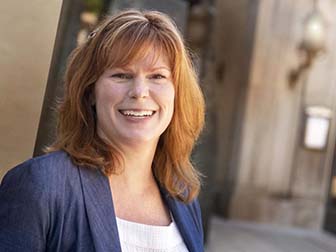UNIVERSITY PARK, Pa. — Most aspiring law students prepare heavily for the Law School Admission Test (LSAT), spending countless hours in a library, classroom, coffee shop, or in the comfort of their home while they pore over prep materials and practice exams. Korrin Moon’s experience was a bit less typical — although she also spent many hours studying for the exam, her preparation often took place overseas in the midst of operations to combat human trafficking.
“On missions in the middle of the night, the guys on my team would hold the flashlight over the book and I’d be circling stuff,” Moon recalled. “And then we would jump out and do a raid on a club and then I’d come back and start working on some logic problem.”
A 2023 alumna of Penn State Law in University Park, Moon is using her juris doctor (J.D.) degree to further her efforts to fight human trafficking abroad and in the United States. That work includes Lantern Rescue, a nonprofit that Moon co-founded prior to starting law school, as well as a position with the District Attorney’s (DA) Office in Lycoming County, Pennsylvania, where she serves as a special prosecutor focusing on human trafficking and child sexual abuse material (CSAM).
“The more people know and learn about trafficking, the more we can do to combat it,” Moon said. “It happens in the United States, it happens all over the world. There’s really no country that doesn’t experience some form of trafficking.”
Fighting human trafficking abroad
Moon’s initial interest in human trafficking began at Lycoming College, where she completed her bachelor’s degree, during a course that introduced her to the topic. Following her undergraduate education, she enlisted in the Marine Corps where she served as a Russian translator for five years. That experience gave her a better understanding of what trafficking looks like overseas, how other countries and nonprofits combat it, and where she saw room for improvement.
“A lot of times with nonprofits, they have the best intentions but the way they set it up is that the only work that can be done is by the actual people employed by the nonprofit, and that’s not the model we wanted to go with,” Moon said. “What we wanted to do is to train local law enforcement and train people within their own communities in foreign countries to be their own task forces and to rescue their own people so that they’re helping their countrymen and their citizens all year round, every day, and not just when the people from the nonprofit in America show up a couple times a year.”



